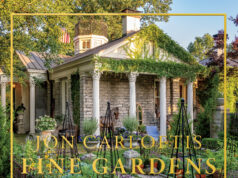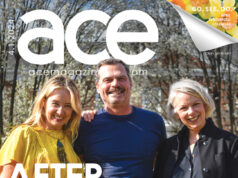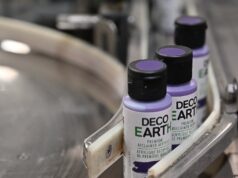Lucky Laura
The entrepreneur behind Laura’s Lean Beef has launched an inspiring second act
By KEVIN NANCE
The story of Laura Freeman’s second act begins with a horse. On May 19, 2005, the eponymous founder of Laura’s Lean Beef was out for a ride on her 1500-acre estate, Mt. Folly Farm, when her horse spun her off. Freeman, then a competitive event rider who had recently returned from a meet, landed hard and suffered a traumatic brain injury. She was air-lifted to the University of Kentucky Hospital and later spent months at Cardinal Hill Rehabilitation Hospital relearning how to swallow, walk, talk, type and perform other basic tasks.
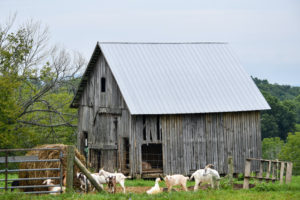


Freeman knew she couldn’t run an operation as large and complex as Laura’s Lean Beef anymore — in part because, aside from the rehab challenges, she was in near constant pain.
“There was just no way,” she said in a recent interview at the farm. “When I would go into the office to try to sell the company, I’d shut the door and lay down on the floor, because the pain was so bad.”
But that closed door, as is the way of things, opened another. The solution to her pain turned out to be CBD oil extracted from hemp. “The first time I tried it, it didn’t work,” recalls Freeman, now 64. “But after I got the right type and the right dosage, boom! The full-body pain went away in a week. CBD helped my recovery tremendously. And I said, ‘Good lord, we want to grow this.’ ”
It was a eureka moment that — after a protracted recovery, during which Freeman sold Laura’s Lean Beef, moved to Martha’s Vineyard, and pondered retirement — finally set into motion another entrepreneurial chain of events that continues to this day.
“There’s a big difference between cattle grazed locally and rotationally and cattle trucked to huge feed lots in Kansas, with thousands of animals per square mile.”
—Alice Melendez



Returning to Mt. Folly Farm, which has been in Freeman’s family for several generations, she and her daughter, Alice Melendez, planted their first hemp crop in 2014, just after it became legal in Kentucky. Now the farm’s umbrella corporation, Mt. Folly Enterprises, markets an increasingly popular line of USDA certified products, sold primarily through Freeman’s e-commerce website.
But CBD oil, while the farm’s major product, is far from its only one. As part of what Freeman now merrily calls Mt. Folly’s “hemp and booze economy,” it started Wildcat Willy’s Distillery, a small craft whiskey operation in downtown Winchester, in 2016. Wildcat Willy’s now sells its own single-barrel, four-grain bourbon, called 1833, made from corn and rye grown on the farm and aged for four years in an old burley tobacco barn. (The farm also air-cures its hemp in repurposed tobacco barns.) In addition, the distillery makes and sells apple and bramble-berry brandies as well as heirloom corn and sweet potato moonshine straight from the still, although 1833 currently has a growing following in Kentucky and the region. A 750 ml bottle goes for $44.99. (The two moonshine varieties are $18.99 for 375 ml.)
The distillery, which currently makes less than 50,000 gallons of spirits a year, is being kept deliberately small at this point. “When we say craft bourbon, we mean real craft bourbon,” Freeman says with a smile. But 1833’s very scarcity — it’s sold exclusively at the distillery and on its website — is part of its appeal.
“I was down at the distillery this morning about 9:30, and even though they don’t open till 11, there was a father and son from Cincinnati that beat on the door until I came to it,” says Ben Pasley, Mt. Folly’s chief operating officer and manager of the farm’s 30-person, mostly thirtysomething workforce. “They were getting ready to head to the Red River Gorge to hike for the day and wanted a single-barrel bourbon while they were here.”
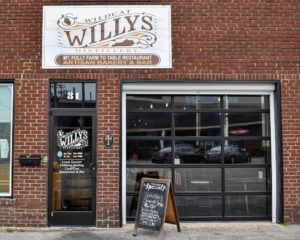


Wildcat Willy’s quickly expanded to include a farm-to-table restaurant serving organic beef and chicken raised at the farm using the same no-antibiotics, no-growth-hormone mantra that governed Laura’s Lean Beef. That farm-to-table strategy employs many sustainable farming practices such as regenerative crop rotation, goats used for weed control in lieu of herbicides, and cattle grazed in a rotating sequence of farm locations to allow for a gradual buildup of organic matter and complex root structures in the soil.
“When we say craft bourbon, we mean real craft bourbon,”
—founder Laura Freeman says of Wildcat Willy’s, which currently produces less than 50,000 gallons of spirits a year
“There’s a big difference between cattle grazed locally and rotationally and cattle trucked to huge feed lots in Kansas, with thousands of animals per square mile, creating lagoons of poop,” Melendez says. “It’s night and day.”
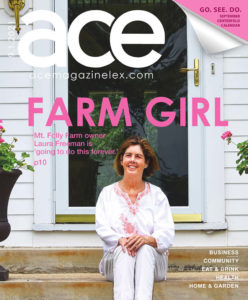

“I’m an environmentalist from way back,” she says, “but I really had no idea how bad climate change was, in climate systems mapping and in reality, until that fellowship.”
Helping to avoid that dire future is now Freeman’s final mission. Thoughts of retirement are long banished. “I’m going to be the soils and the cattle and the tree person at the farm,” she says. “And I’m going to do that forever.”
This article also appears on page 10 & 11 of the September 2021 print edition of Ace.
Subscribe to the Ace e-dition for Lexington news, arts, culture, food, and entertainment news delivered to your inbox.
Call today to advertise in Ace, 859.225.4889



